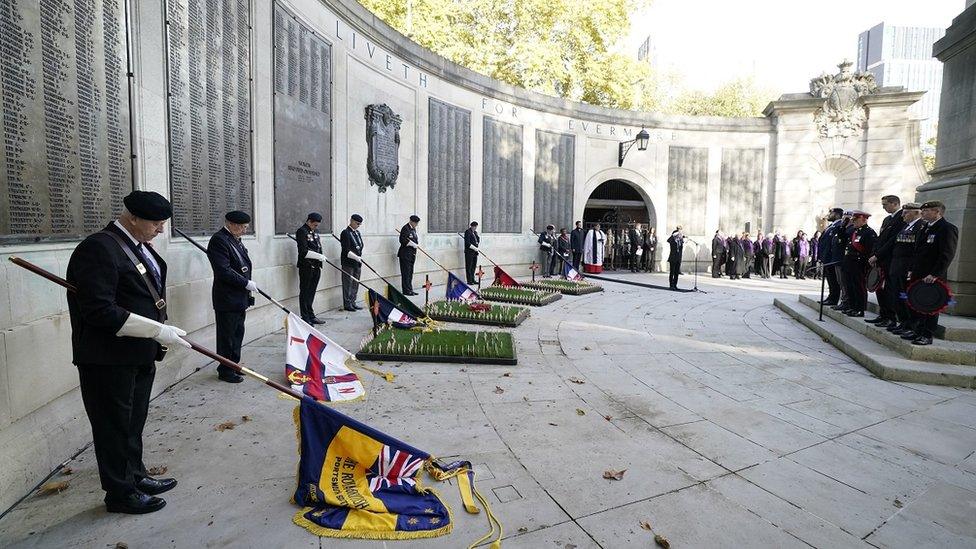Remembrance Day: Veterans make 'emotionally challenging' return to Falkland Islands
- Published
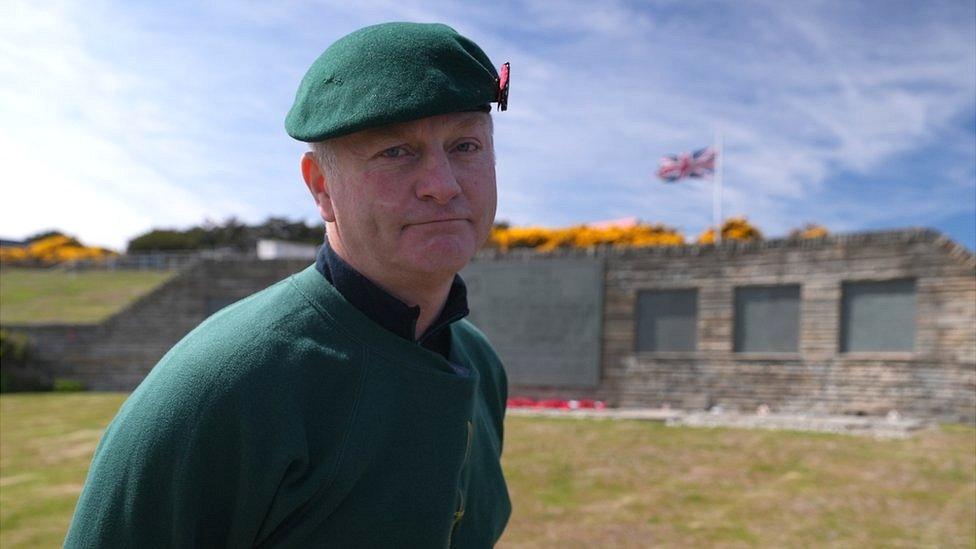
Gary Plats said he hoped returning to the Falkland Islands would be like pulling a plaster off a wound
The Falklands War took place 40 years ago - but many of those who fought there are still living with the scars of the short 10-week conflict with Argentina. This week, some of the British veterans have returned for the first time to the islands to mark the anniversary and pay tribute to fallen friends.
San Carlos bay, like most of these remote, wilderness islands in the South Atlantic, is now a place of peace and tranquillity. Only the sound of the wind and waves lapping on the shore. But four decades ago it was known as "Bomb Alley" - with Argentine jets trying to bomb the British task force sent to liberate the islands.
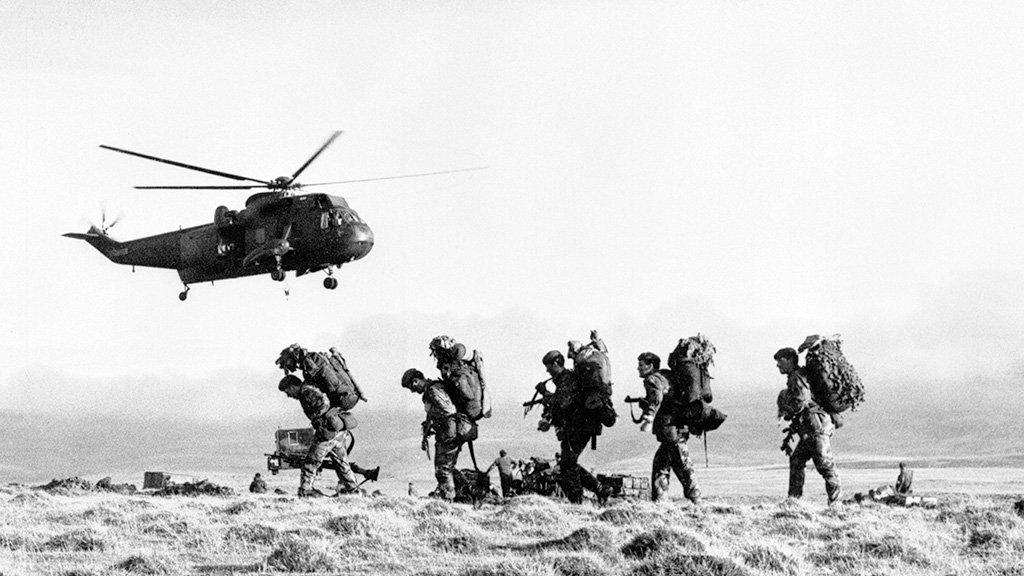
Royal Marines transported from San Carlos to Darwin, Falkland Islands, June 1982
Gary Plats was among the first wave of UK forces to land at San Carlos. He lost some good friends. He had been putting off a return to the islands. He still wasn't sure when the opportunity arose.
"I knew how emotionally challenging it would be," says Gary.
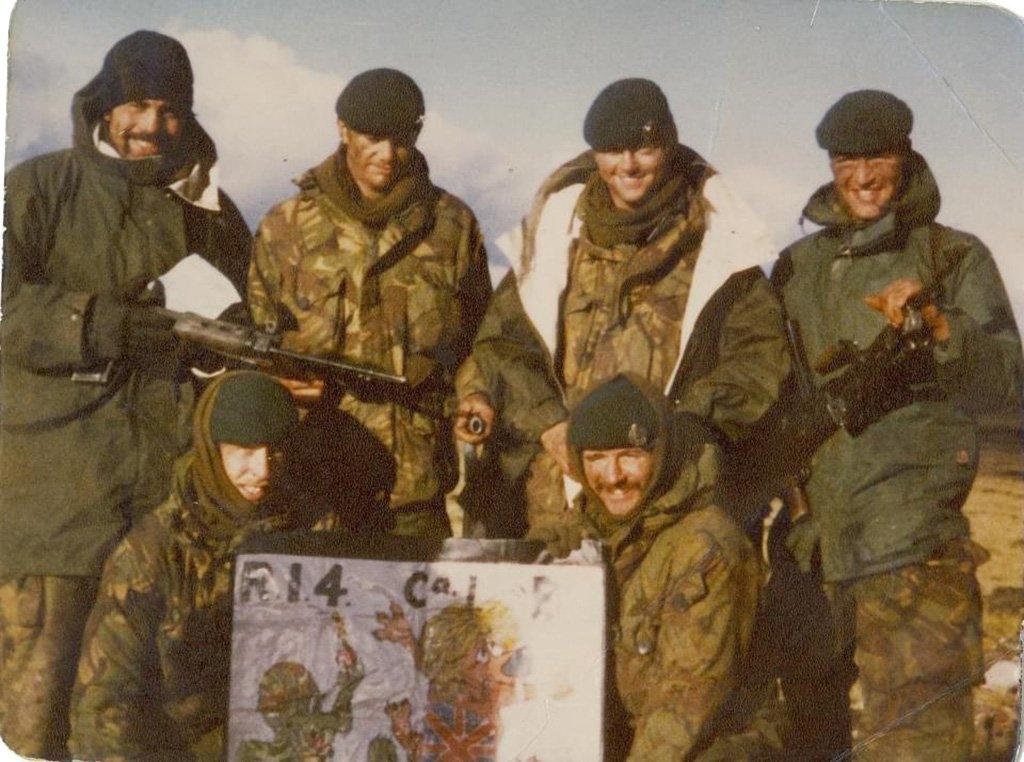
One of Gary Plats' photos from 1982
He had hoped returning to the Falklands would be like pulling off a plaster to help heal a wound. He is pleased he has made the 8,000-mile (12,875km) journey.
But it doesn't stop him shedding tears for fallen comrades. He calls it survivor's guilt.
He says he doesn't suffer from Post Traumatic Stress Disorder (PTSD), but other veterans we meet are not ashamed to say they do. Some were just 17 years old when they fought in the war.
Gary is among a group of more than a hundred veterans and family members who have been flown to the Falklands. The Ministry of Defence put on the special flight to mark the 40th anniversary of the war and to coincide with Armistice Day and Remembrance Sunday. Veterans applied in a ballot to make the long journey.
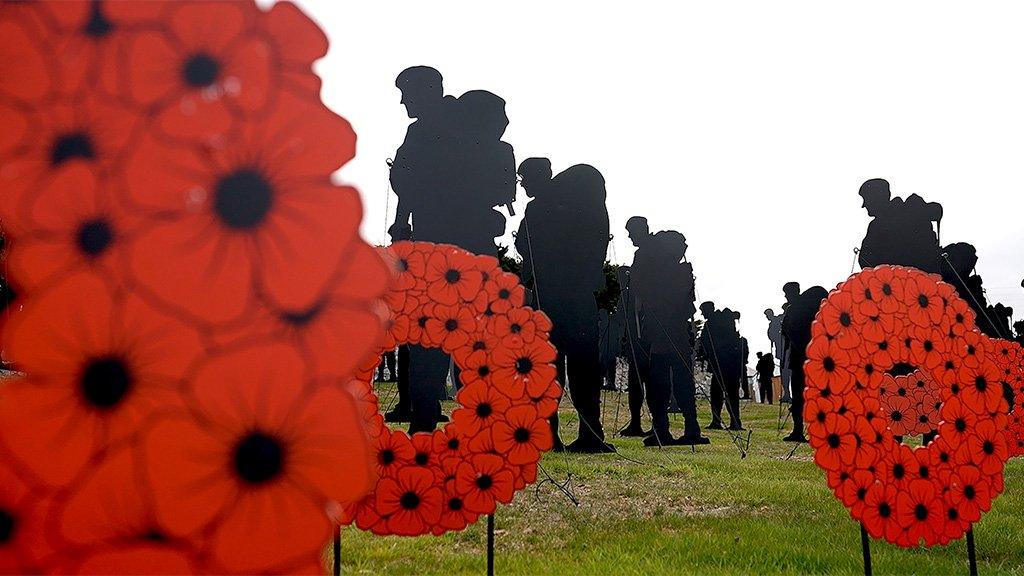
On the main street in Port Stanley, life-sized silhouettes represent the 255 British soldiers and sailors who lost their lives
Like all the veterans we speak to, Gary still thinks of the war as a just conflict. That sentiment is reinforced by the islanders who have welcomed them as heroes. There are just over 3,000 inhabitants. Sheep outnumber them by more than a hundred to one.
But nearly all of the people who live here remain fiercely British. The number of union flags on display makes it look like there is a permanent street party. Yet, despite suffering a humiliating military defeat in 1982, Argentina has not given up its claim to the islands.
That sense of patriotism and gratitude can also be seen in the capital Port Stanley. On the main street they've placed life-sized silhouettes representing the 255 British soldiers and sailors who lost their lives in the war.
The passing of time may have made the Falklands War seem even more remote to many. But here, their sacrifice is remembered with gratitude.
Near Goose Green there is a cemetery for the some of the 649 fallen Argentines. It is one of the sites visited by the British veterans and their families.
For Jacqui Giffin, it is a sobering moment. "They're still somebody's brother, somebody's son and they were doing their job just as my brother was doing his".
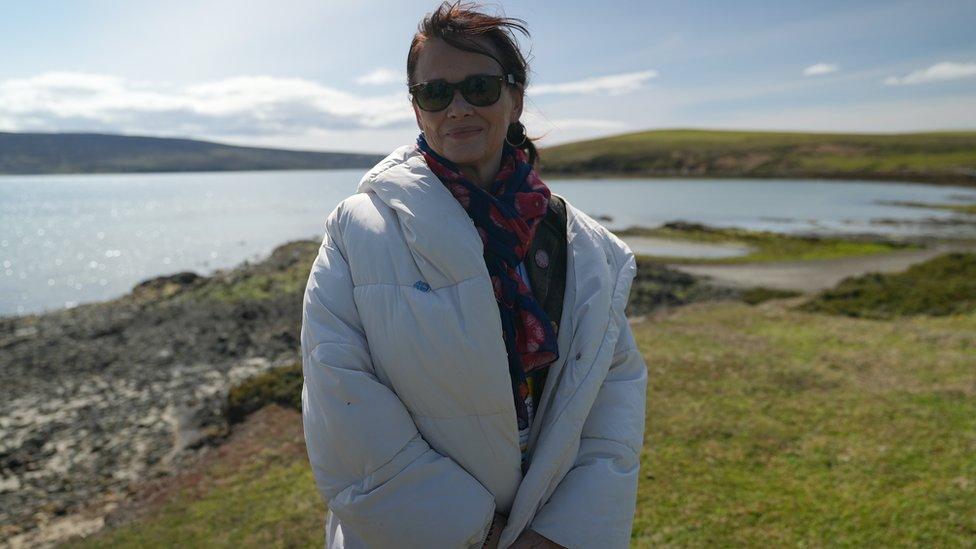
Jacqui Giffin's brother was among the first casualties of the war
Not all the British visitors are as forgiving. One widow says she can never forget what the Argentines had done by taking the life of her young husband: "the love of my life".
Jacqui was just 19 when she was told of the death of her older brother Brett Patrick Giffin. He was among the first casualties of the war when his helicopter was shot down.
He was buried at sea. There is no grave for Jacqui to visit, but she's still pleased she came.
Looking out on to the windswept water, she tells me: "This is where he came and this is where he ended. And he's still here I think."
She describes the visit as cathartic, even though her brother's death has left a huge void.
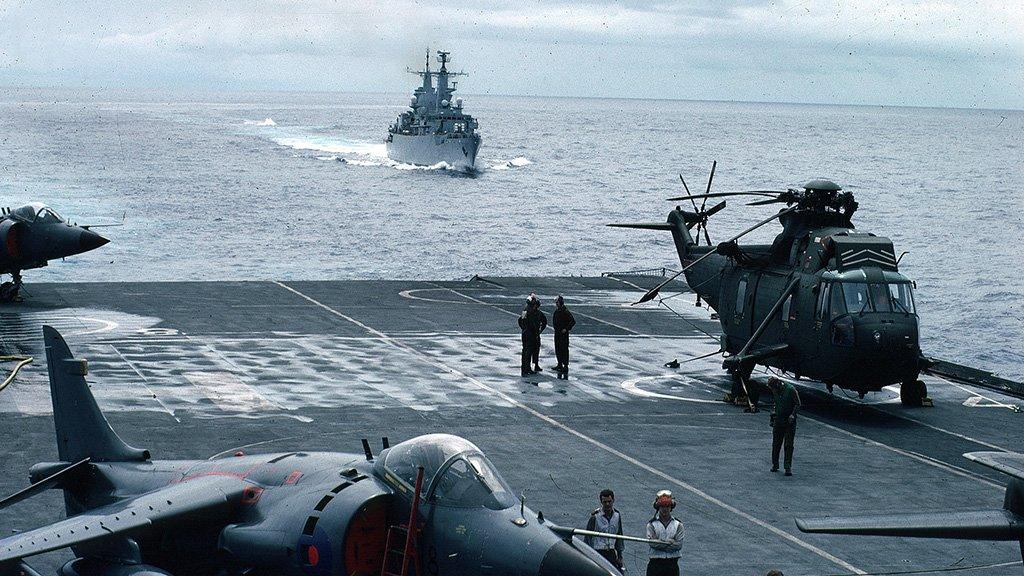
The flight deck of HMS Invincible, en route to the Falklands, 1982
Remembrance in the Falklands is focused on the British lives lost. Each name is engraved on plates surrounding the war memorial in Port Stanley.
The Argentine writer, Jorge Luis Borges, once described the Falklands War as "two bald men fighting over a comb".
But the Falkland Islanders prefer a quote from Margaret Thatcher - spoken about them - now written below a bust of her overlooking the war memorial.
It reads: "They are few in number but they have the right to live in peace, to choose their own way of life and to determine their own allegiance."
Related topics
- Published11 November 2022
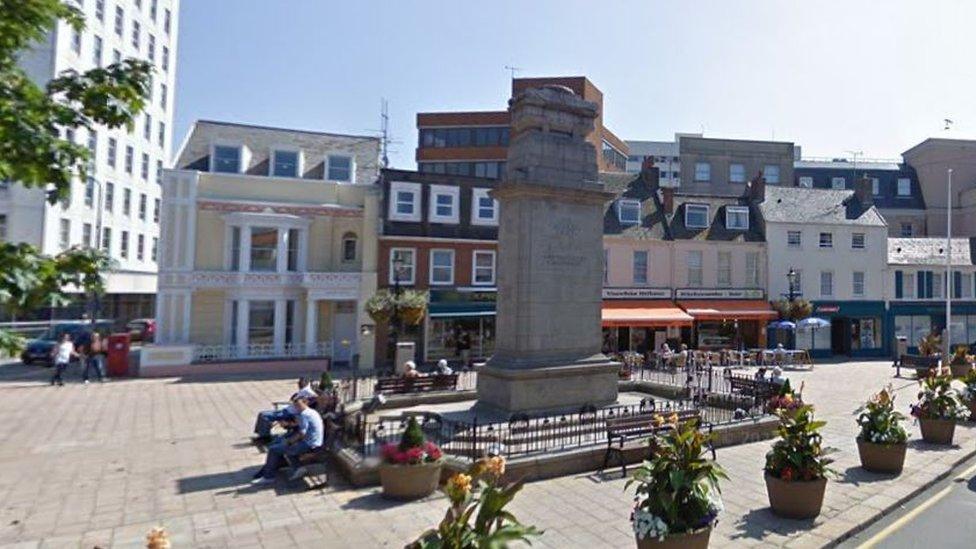
- Published9 November 2022
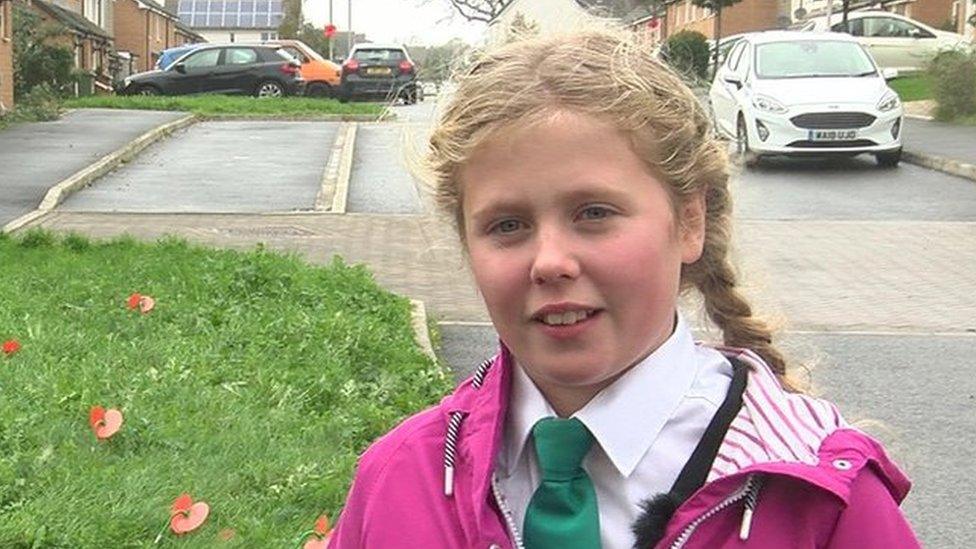
- Published11 November 2022
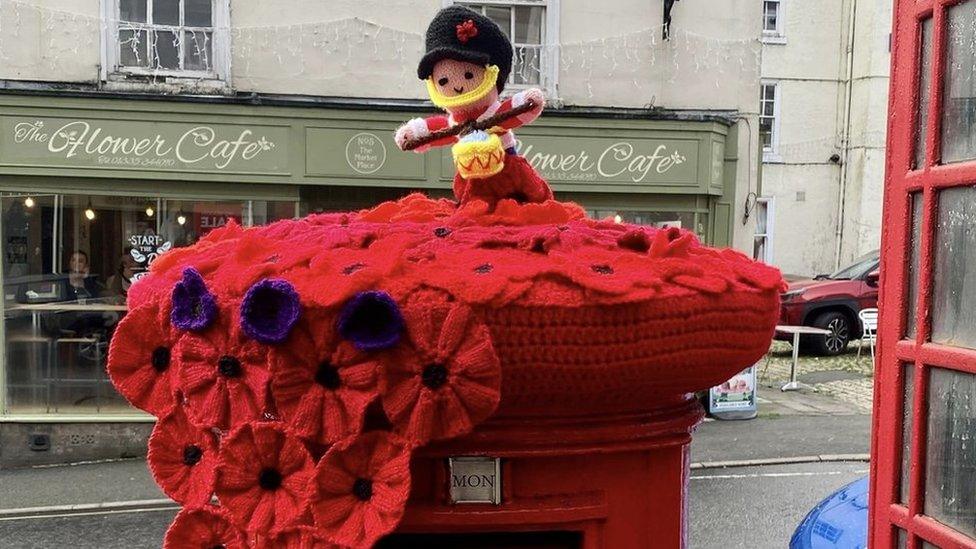
- Published11 November 2022
